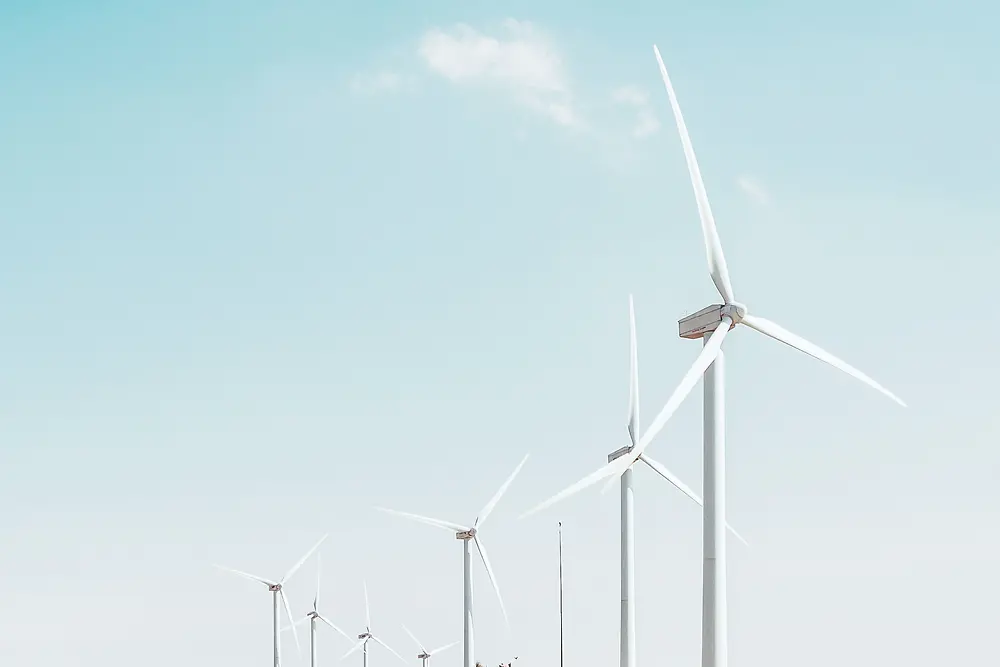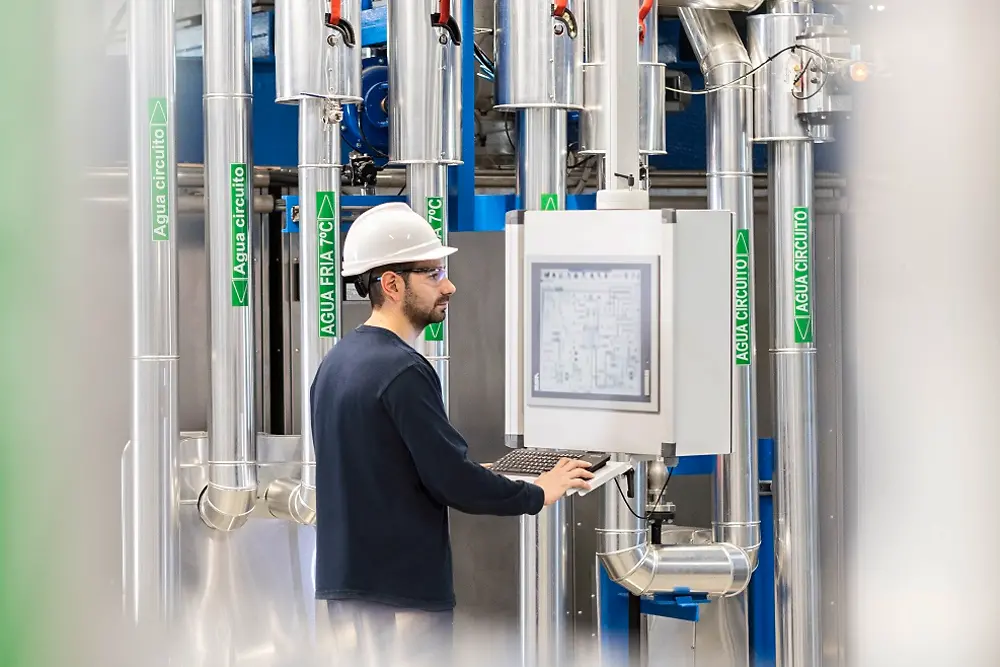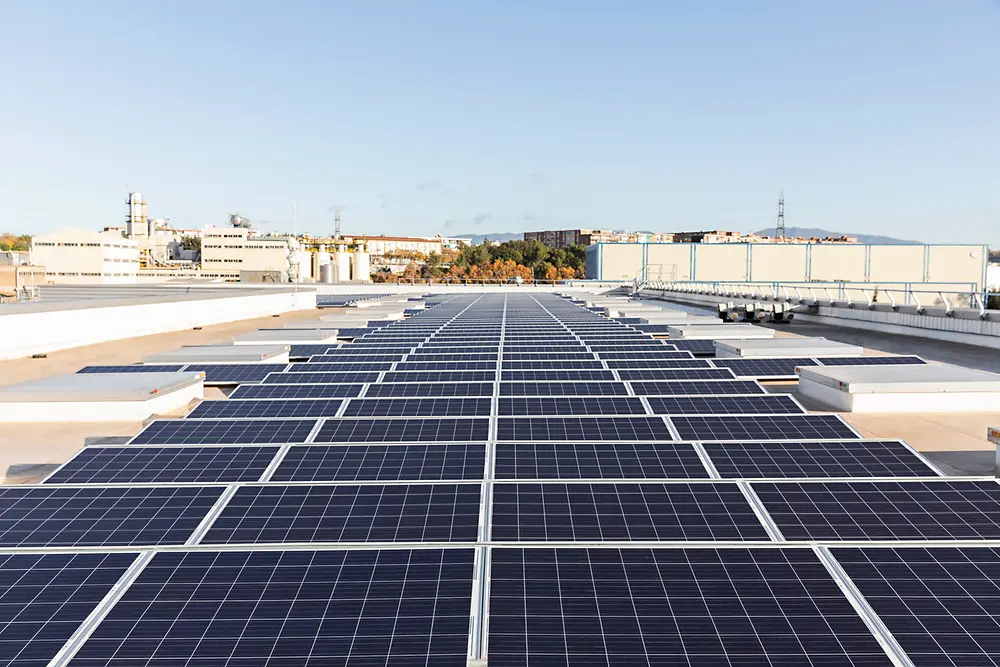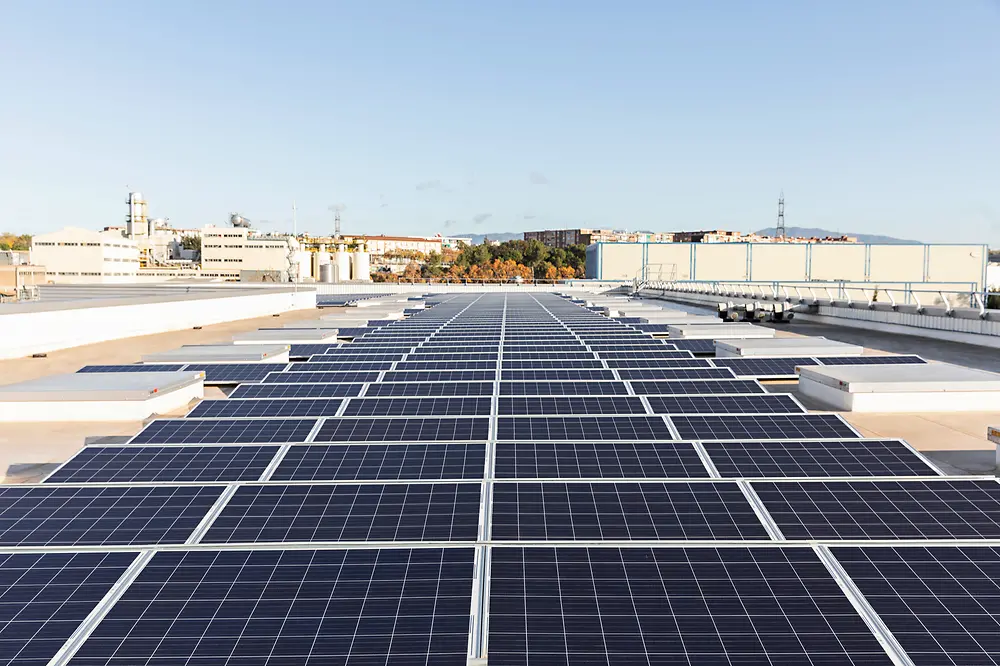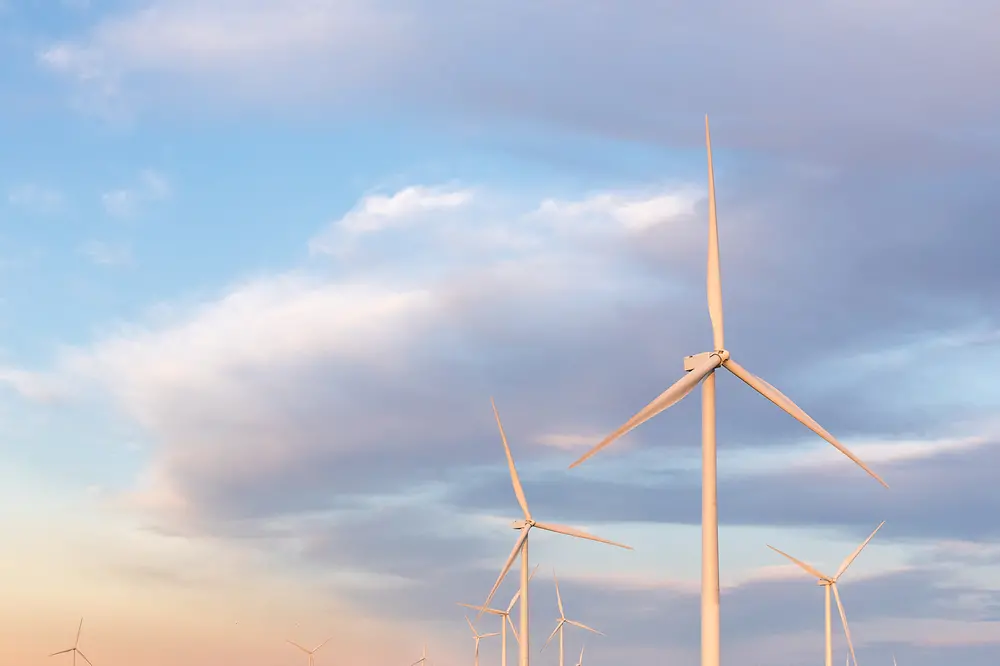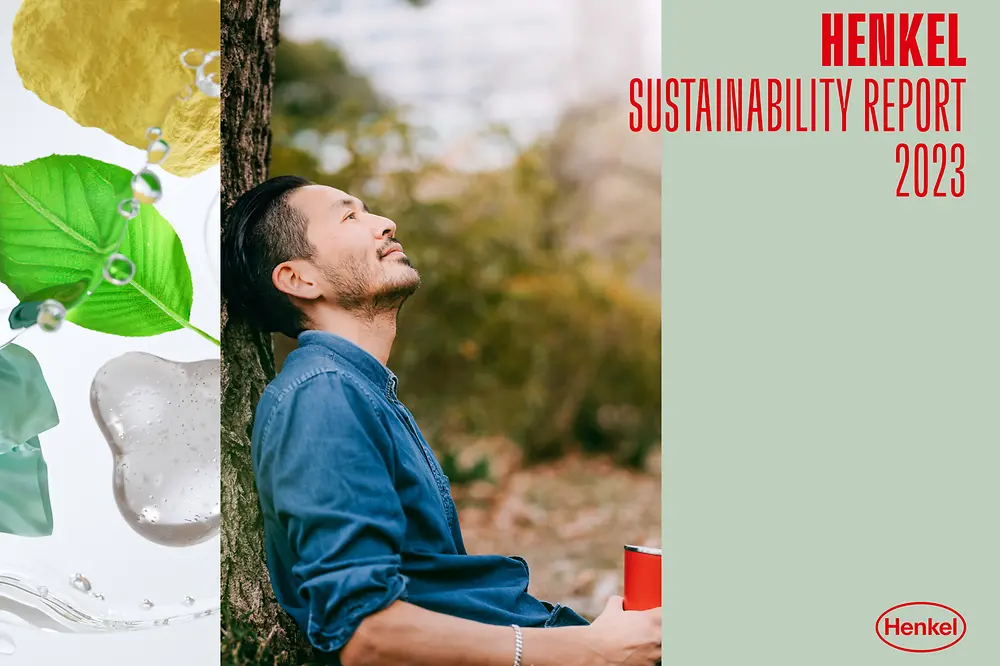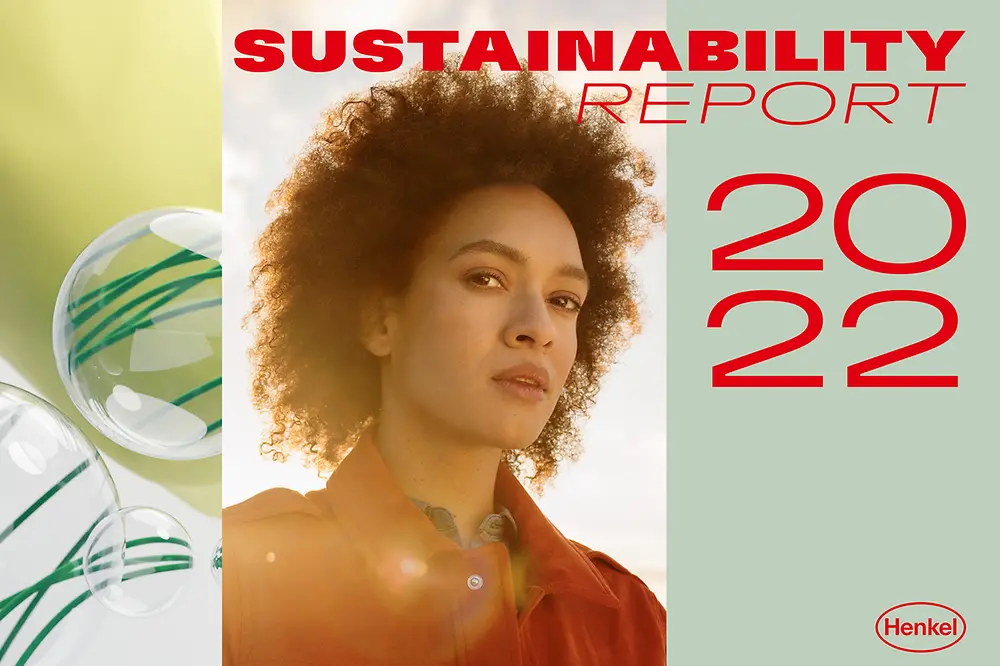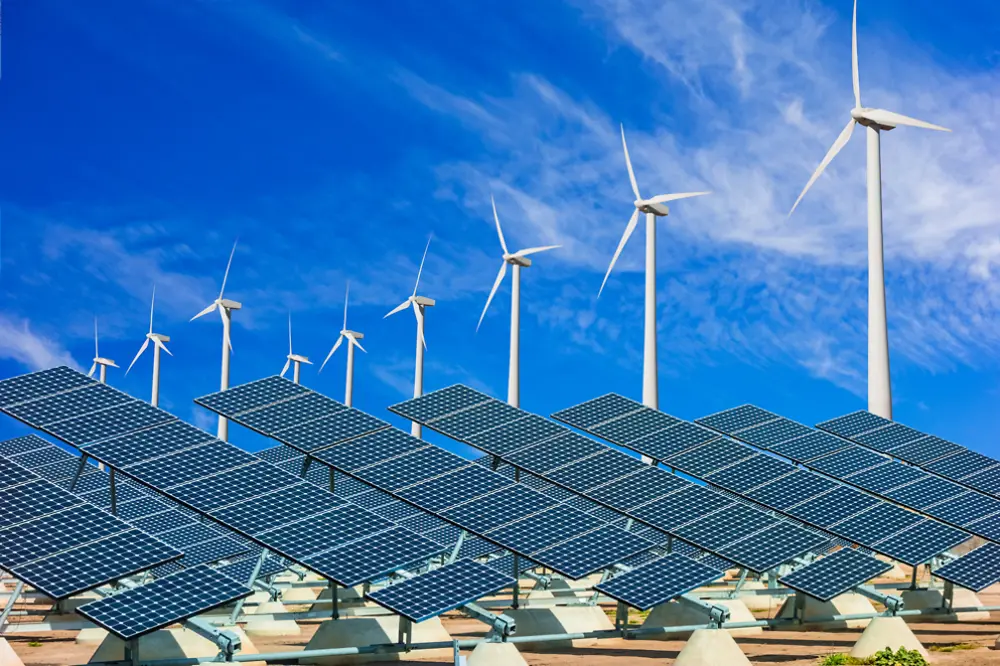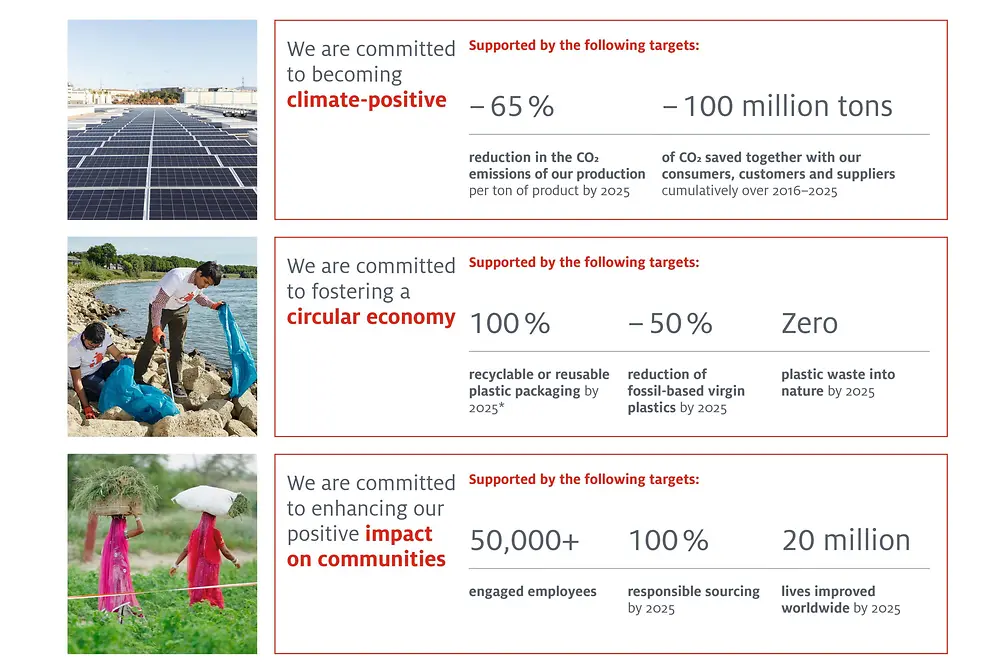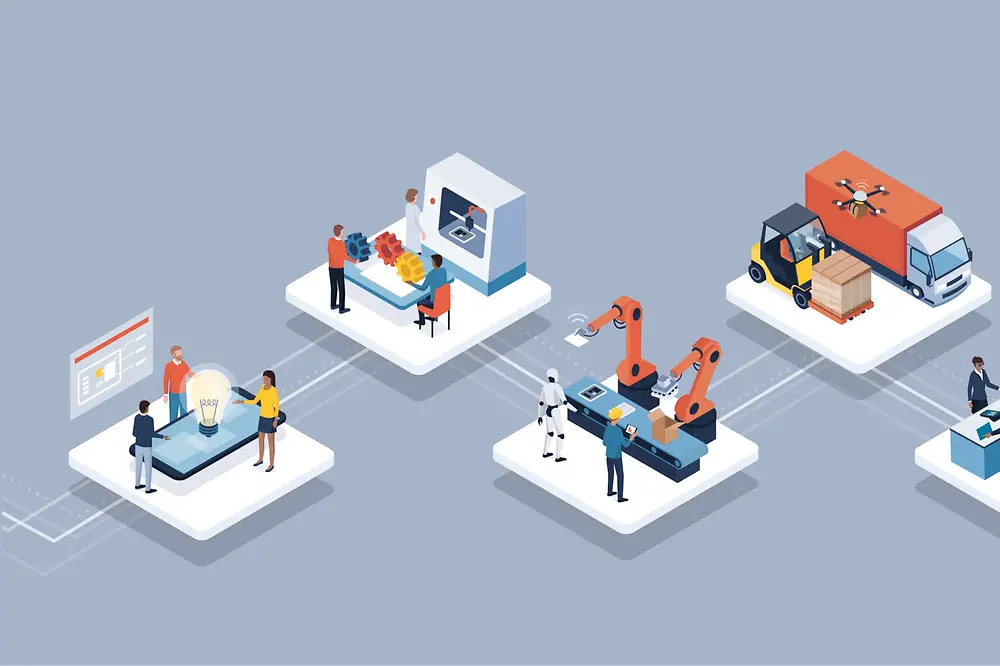Discover the brands and technologies from our business units Henkel Adhesive Technologies and Henkel Consumer Brands.
Every Friday, thousands of students take to the streets all over the world. The "Fridays for Future" movement, launched by the young Swede Greta Thunberg in 2018, has achieved what many did not achieve before: it has brought the issue of climate change and its consequences to the center of public attention.
It’s often about the everyday things: flipping a light switch, turning on a hot shower or driving the car. These actions, large and small, are compounded by the number of people who do them and how often they are done, creating an overwhelming CO2 footprint – which means the greenhouse gas emissions that are released into the atmosphere in a particular period of time. The footprint can be calculated for individual people, but also for organizations or countries. That is why it’s so important that everyone is aware of the environmental impact of energy consumption and looks for solutions that consume less energy or use it more efficiently. After all, being energy efficient could reduce the cost of living around the world, benefit the health of millions, and ultimately reduce the impact of climate change.
How Henkel actively contributes to climate protection
Achieving more with less by developing products and technologies that enhance quality of life while consuming less materials and resources is our highest priority. Our approach to climate action follows a concrete sustainability strategy. As part of this strategy, we aim to triple the value we create relative to our environmental footprint while decreasing the carbon footprint of our production activities by 75 percent by 2030, and providing products and technologies that help our customers and consumer to save 50 million metric tons of CO2.
Henkel also follows the long-term vision of becoming a climate-positive company by 2040 and making an active contribution to climate protection. We can achieve this by saving energy and reducing the amount of raw materials we use, as well as by decarbonizing our production sites by switching to renewable energy. Part of our production is already powered by green electricity that is generated directly on site by wind turbines and solar panels. In the next few years, we aim to cover 100 percent of our demand for electricity with renewable energy.
Sustainability along the value chain
There are opportunities for businesses to improve energy efficiency at every stage in the value chain. As part of our efforts to achieve our own ambitious targets, we place similar expectations on our suppliers and trade partners. By working with energy-efficient suppliers, Henkel can ensure that the rest of our value chain is just as ecologically minded as we are.
To decrease a product’s environmental footprint, its resource and energy consumption can be improved from sourcing through to delivery. Henkel’s research and development teams are constantly developing smarter packaging that uses a minimum amount of material overall and a maximum amount of material that is recycled or that can be easily recycled.
We also focus on constantly improving our production sites and processes around the world, taking the standards of each country into consideration and providing country-specific approaches and solutions. As of 2019, there are 184 Henkel production sites around the world that are all working to reduce their environmental footprint, while maintaining high standards for safety and quality at the same time. One good example is our Leadership in Energy and Environment Design (LEED) certified production site in Montornès del Vallès, Spain.
Smart technology in production sites can record information such as how weather affects production. This makes it easier to find and then improve the parts of production that could be more efficient.
Implementing new technology can also give production processes an ecological boost. With a global digital Environment Management System, production sites can track exactly how much energy and other resources are consumed in a day – all in real-time.
The transport networks that carry products out into the world are also supported by new technologies. With the introduction of Industry 4.0, manufacturing has never been more efficient, flexible or intelligent. Automation, sensor technology, data exchange and real-time analytics increase resource efficiency along the entire production chain.
We are striving to source 100 percent of the electricity we use in production from renewable sources by 2030, for example through solar panels or other technologies at our sites.
Everyone can contribute to climate protection
There’s even more potential for improving energy efficiency after products have left a factory and are used by consumers. The largest part of the ecological footprint of products – up to 90 percent – is created during their use. Brands and technologies from Henkel are used millions of times every day in households and industrial processes worldwide, which is why we have committed to developing innovative products that require and consume less energy. For our employees, we run campaigns that encourage responsible behavior and raise awareness about the importance of energy efficiency. One of these, the Sustainability Ambassador program, trains Henkel employees in energy-efficient behavior and also arranges events for employees to share their knowledge in communities worldwide.


